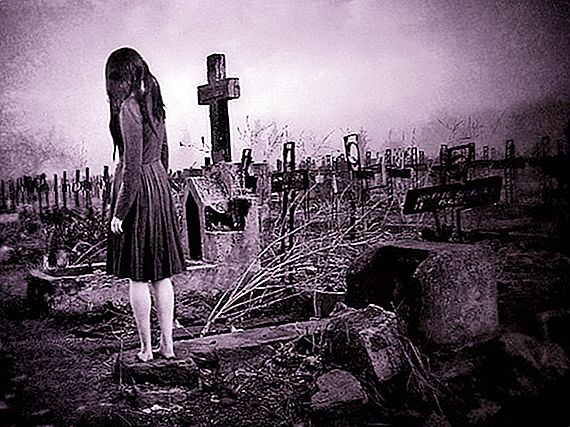Life is always a series of joyful and sad events, but the death of a loved one is always unsettling. As a rule, this happens suddenly, and you begin to realize that you did not say much to the deceased. How to survive the loss of a loved one?

The death of close relatives, the death of a husband or the death of a child - any of these events will undermine your mental and physical health. You must cope with this grief, survive it.
Psychologists distinguish several stages of grief for the deceased. As a rule, these steps alternate. It is known that understanding what is happening to you is the first and most basic step to spiritual healing.
Stage 1.
This is not true, he could not die.
This stage is called negation. You do not believe what is happening. It seems to you that all this is dreaming, because it doesn’t seem so true. At this stage, a person may be inactive or, conversely, actively prepare for a funeral. Both that and another speaks that the person does not realize that everything that is happening is real. There is no point in comforting such a person, you just need to support and talk, talk as much as possible. Address the person as often as possible by name - this is very important. This stage is almost never delayed and in the near future a person will come to his senses.
Stage 2.
It’s my fault. If I did the right thing, then this could have been avoided.
In a person’s memory there are moments when they swore with the dead, what careless words were thrown at him. Remembering all this, he begins to reproach himself. Sawing yourself is extremely wrong, you need to realize it. Mentally ask the deceased forgiveness, he will let you go over time.
Stage 3.
I don’t have to live anymore, because a world without a loved one is so monotonous and gray.
Depression and longing tend to roll after a funeral. If you keep emotions and feelings within you, then you will plunge into grayness. Be sure to cry to someone, talk about your experiences. Many believe that this is a manifestation of weakness, and that is why they do not open to people. Because of this, depression also follows.
Stage 4.
I can survive it.
This stage can last several years. This time is needed in order to get used to the difficult thought. During this stage, you need to pull yourself together and begin to live on.
